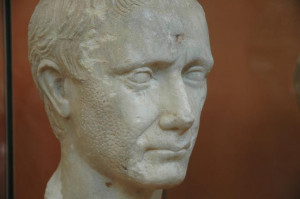

Contrary to the negative connotations that the modern use of the word evokes, the Roman dictator was appointed by the Senate during times of emergency as a unilateral decision-maker who could act more quickly than the usual bureaucratic processes that the Republican government would allow. He centralized the bureaucracy of the Republic and eventually proclaimed himself “dictator in perpetuity.” It is important to note that Caesar did not declare himself rex (king), but instead, claimed the title of dictator. Gaius Julius Caesar was a Roman general, statesman, consul, and notable author of Latin prose.Īfter assuming control of the government upon the defeat of his enemies in 45 BCE, Caesar began a program of social and governmental reforms that included the creation of the Julian calendar. During this time, many staunch Senate conservatives, such as Cato the Younger, were either killed or committed suicide, thereby greatly decreasing the number of optimates in Rome. Civil War ensued, with Pompey representing the Roman Senate forces against Caesar, but Caesar quickly defeated Pompey in 48 BCE, and dispatched Pompey’s supporters in the following year.

In doing so, he deliberately broke the law on imperium and engaged in an open act of insurrection and treason. Caesar refused and marked his defiance in 49 BCE by crossing the Rubicon (shallow river in northern Italy) with a legion. With the Gallic Wars concluded, the Senate ordered Caesar to step down from his military command and return to Rome. These achievements granted Caesar unmatched military power and threatened to eclipse the standing of his colleague, Pompey, who had realigned himself with the Senate after the death of Crassus in 53 BCE. Caesar became the first Roman general to cross both when he built a bridge across the Rhine and conducted the first invasion of Britain. Meanwhile, Caesar’s victories in the Gallic Wars, completed by 51 BCE, extended Rome’s territory to the English Channel and the Rhine River. Their attempts to amass power through populist tactics were opposed by the conservative ruling class within the Roman Senate, among them Cato the Younger and Cicero. Caesar won, as well as conservative Marcus Bibulus, but saw that he could further his political influence with Crassus and Pompey. The election was particularly contentious, with corruption occurring on all sides. An acclaimed military commander who had also served in a variety of political offices, Caesar sought election as consul in 59 BCE, along with two other candidates. Caesar made the initial overtures that led to the informal alliance. In 60 BCE, Caesar, Marcus Licinius Crassus, and Gnaeus Pompeius Magnus (Pompey the Great) formed a political alliance, known as the First Triumvirate, that was to dominate Roman politics for several years. He played a critical role in the events that led to the demise of the Roman Republic and the rise of the Roman Empire. Gaius Julius Caesar was a Roman general, statesman, consul, and notable author of Latin prose. PompeyĪ military and political leader of the late Roman Republic, who represented the Roman Senate in a civil war against Julius Caesar.

Julius CaesarĪ Roman general, statesman, consul, and author, who played a critical role in the events that led to the demise of the Roman Republic and the rise of the Roman Empire.

In the early Republic, by contrast, a dictator was a general appointed by the Senate, who served temporarily during a national emergency. Caesar was assassinated in 44 BCE by his remaining enemies in the Senate, throwing Rome into another period of chaos and civil war.ĭuring Caesar’s time, in the late Roman Republic, ruler for life.
Cato the younger vs gaius julius caesar series#
As dictator, he instituted a series of reforms and, most notably, created the Julian calendar.


 0 kommentar(er)
0 kommentar(er)
